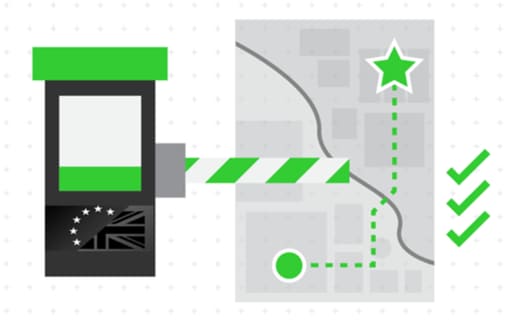How to Avoid Cross-Channel Shipping Mistakes

Shipping freight across borders can cause some unique headaches.
Everything is multiplied: multiple authorities, multiple customs regulations, multiple sets of paperwork. European shippers have been lucky enough to avoid many of these issues for years. But in the wake of Brexit, cross-Channel shipping into and out of the United Kingdom is once again complex, error-prone and a potential site for costly delays.
While you cannot control everything, there are some common mistakes you can watch out for when shipping cross-Channel.
Learn about the five most common cross-Channel mistakes, and how to avoid them, in this guide.
1. Don’t Ship on Short Notice
You must provide adequate time for your customs provider to review your shipment to ensure it doesn’t get delayed. Ideally, you should give at least 24 hours advance notice by submitting a commercial invoice detailing the goods in your shipment. This will allow your customs provider to start preparing customs documents and identify any issues or complexities well before the goods are loaded for transport.
2. Avoid Inaccurate Invoices
Even the smallest mistake on your commercial invoice can cause a major delay. Every detail matters when you are requesting customs documents and looking to get your freight cleared to cross the border. Ensure your weights across different commodities add up to the total on your packing list and that you’re not confusing net weight and gross weight. A statement referencing country of origin for each commodity must be added and the total value of your goods calculated accurately. Mistakes in any of these details will not be forgiven, and customs authorities will not hesitate to flag your shipment if what they find in your consignment doesn’t match exactly what they see on paper.
3. No Last-Minute Changes
It happens all the time: You’ve already completed your paperwork, but a pallet is damaged when you’re loading it into the truck. Or you get a last-minute order that you think you can fulfill by squeezing an extra package into your consignment. No problem, right? Wrong. Any mismatch between your packing list and the actual goods in your consignment can get your freight detained. If any changes, at all, are made to the shipment, new documents need to be completed and submitted before the truck departs the loading site. In particular, any inaccuracies to a T1 transit document (for UK exports) can result in a fine and a lengthy delay when your freight reaches its destination. If your T1 needs to be amended, let your customs provider know before your load leaves its country of origin.
4. Not Just Anyone Can Sign Your Documents
You might delegate important parts of your shipping process to junior employees but there is one area that cannot be delegated: the power of attorney or mandate to a customs broker. If you are dealing with a customs broker, your documentation granting them power of attorney absolutely must be signed by someone with the legal right to do so. This typically means someone from at least the manager or director level who has the legal power to sign for your company. Sometimes the signatory can be validated with a check with company registration or Chamber of Commerce.
5. Don’t Try to Control What You Can’t Control
Your shipment is the most important thing in the world to you, and you want the people you are working with to get it across the border to do everything in their power to help you. However, there are some roadblocks that even the most committed provider or broker can’t overcome. If authorities at the border flag your shipment, sometimes there’s nothing anyone can do about it. No amount of external pressure will encourage them to clear it any faster, and it might even exacerbate an already tense situation.
Do you need support in the customs area when transporting goods across the English Channel?